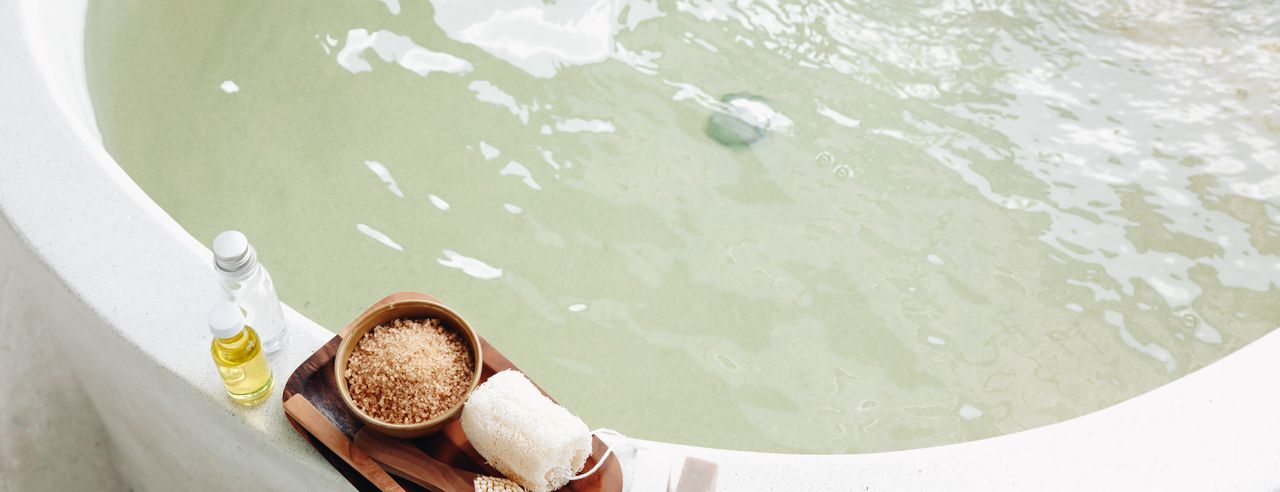
Study on the effect of baths on inflammation and metabolism
S. P. Hoekstra et al.
October 2018
Healing & thermal therapy
Metabolism / Stomach / Intestines
Overweight / obesity
The acute inflammatory responses triggered by regular exercise are thought to improve the inflammatory profile and insulin sensitivity. Since body temperature elevations partially mediate this response, passive heating may be a viable means of improving the inflammatory profile. This study by S. P. Hoekstra et al. investigated the acute and chronic effects of warm water immersion on inflammatory and metabolic markers.
Ten overweight men were immersed in water at 39°C (WWI) for 1 hour or left to rest at room temperature (RT) for 1 hour. Venous blood was drawn before the session, immediately after the session, and 2 hours after the session to determine mononuclear cellular expression of heat shock protein-72 (iHsp72) and plasma concentrations of extracellular Hsp72 (eHsp72), interleukin-6 (IL-6), fasting blood glucose, insulin, and nitrite. The participants then underwent a 2-week intervention with 10 WWI sessions (INT). Eight participants were included as a control group (CON).
Plasma concentrations of IL-6 and nitrite were significantly higher after the WWI session than after the RT session, while iHsp72 expression remained unchanged. Compared to resting levels, fasting blood glucose, insulin and eHsp72 concentrations decreased significantly after the chronic intervention, while no changes in iHsp72 expression were observed.
WWI induces an acute inflammatory response and increases nitrite bioavailability. The reductions in fasting blood glucose and insulin concentrations after the chronic intervention suggest that warm water immersion may serve as a means to improve glucose metabolism.
A single WWI session leads to an acute increase in plasma concentrations of interleukin-6 and nitrite, but not to an acute increase in heat shock protein 72 expression in mononuclear cells (iHsp72). Chronic WWI intervention lowers fasting blood glucose and insulin concentrations without changes in resting iHsp72 expression. Therefore, WWI shows potential as a strategy to combat chronic low-grade inflammation and improve glucose metabolism in individuals who are unable to access exercise due to lack of physical capacity.
The most important information on the study at a glance
- Indications
- Inflammation, diabetes, obesity
- Institution
- The Peter Harrison Centre for Disability Sport, Loughborough University, Loughboroug, United Kingdom
- Title
- Study on the effect of baths on inflammation and metabolism
- Brief description
- The study shows that warm water immersion lowers fasting blood glucose and insulin, which improves glucose metabolism.
- Original title
- Acute and chronic effects of hot water immersion on inflammation and metabolism in sedentary, overweight adults
- Link to the study
- https://pubmed.ncbi.nlm.nih.gov/30335579/
Suitable trips for this study topic
You might also be interested in
Healing & thermal therapy
Joanna Vaile et al.
June 2008
The study shows that cold water immersion (KWI) and contrast water therapy (KWT) improve recovery from muscle soreness.
Healing & thermal therapy
Heart / Circulatory system
Mine Karagülle et al.
January 2017
The study shows that salt baths increase antioxidant activity and bring about clinical improvements in rheumatoid arthritis.
Healing & thermal therapy
Skin / Allergies
Ehrhardt Proksch et al.
February 2005
The study shows: Magnesium-rich Dead Sea salt solution improves skin hydration, barrier function & inflammation in atopic eczema.